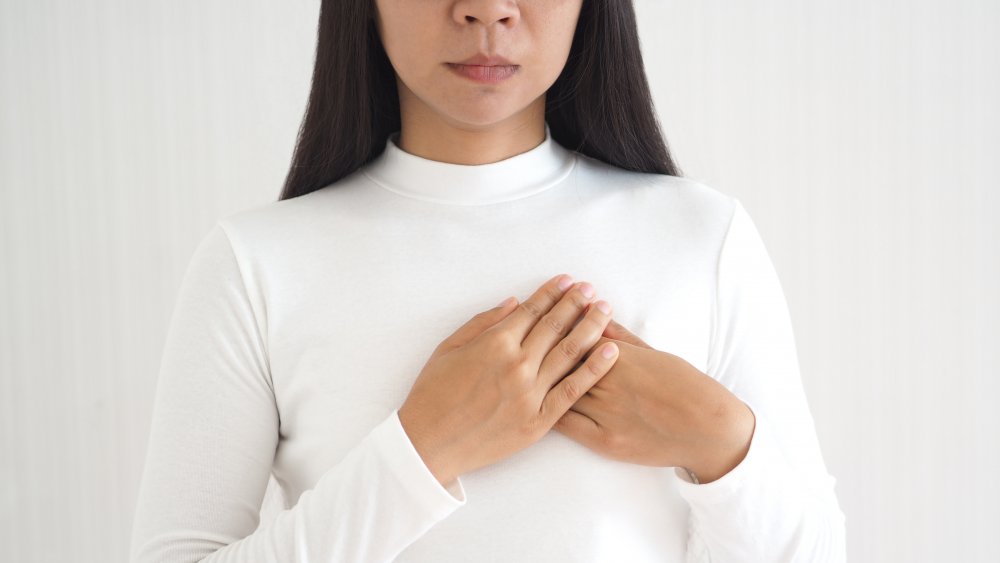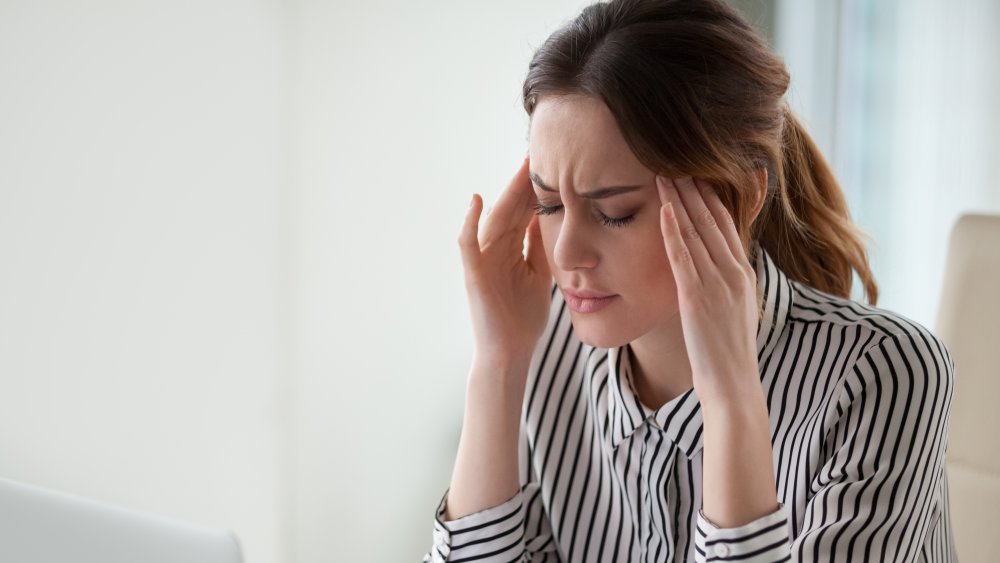The Truth About Broken Heart Syndrome
While a broken heart may feel like the end of everything, it's an emotional pain which means that it can't really harm us physically, right? Well, not quite. While it's unlikely that a broken heart will actually kill you, there is such a thing as broken heart syndrome.
As noted by heart.org, broken heart syndrome — also known as stress-induced cardiomyopathy or takotsubo cardiomyopathy — can affect anyone, although it's more likely to occur in men. The syndrome is typically brought on by a stressful event, whether or happy or sad. Broken heart syndrome can be brought on by a broken heart due to a breakup or the loss of a loved one, or even a happy but unexpected shock like winning the lottery.
Broken heart syndrome is the result of stress hormones and is characterized by sudden and intense pain in the chest that is sometimes mistaken for a heart attack. While broken heart syndrome is not pleasant, the good news is that it is rarely lethal. Most patients recover within days or weeks.
Broken heart syndrome has been on the rise
Broken heart syndrome has been on the rise, according to one study published in JAMA Network Open. "The COVID-19 pandemic has brought about multiple levels of stress in people's lives across the country and world," said the study's leader, Dr. Ankur Kalra, in a press release (via People). "People are not only worried about themselves or their families becoming ill, they are dealing with economic and emotional issues, societal problems and potential loneliness and isolation. The stress can have physical effects on our bodies and our hearts, as evidenced by the increasing diagnoses of stress cardiomyopathy we are experiencing."
It should be noted, though, that the study was quite small and more research is still needed. Emeritus cardiology professor at the University of Adelaide Dr. John Horowitz told CNN that, while he believes the study is flawed as the people studied had acute coronary syndrome, it is true that broken heart syndrome is often found in patients "at times of extreme stress or during natural disasters." This seems to suggest that while not all of the cases of broken heart syndrome from the study may have been caused by the pandemic, it is a likely contributor.
The bottom line is that self-care is important, as Dr. Grant Reed, the study's senior author, said in the press release. "For those who feel overwhelmed by stress, it's important to reach out to your health care provider," he said. "Exercise, meditation and connecting with family and friends, while maintaining physical distance and safety measures, can also help relieve anxiety."

